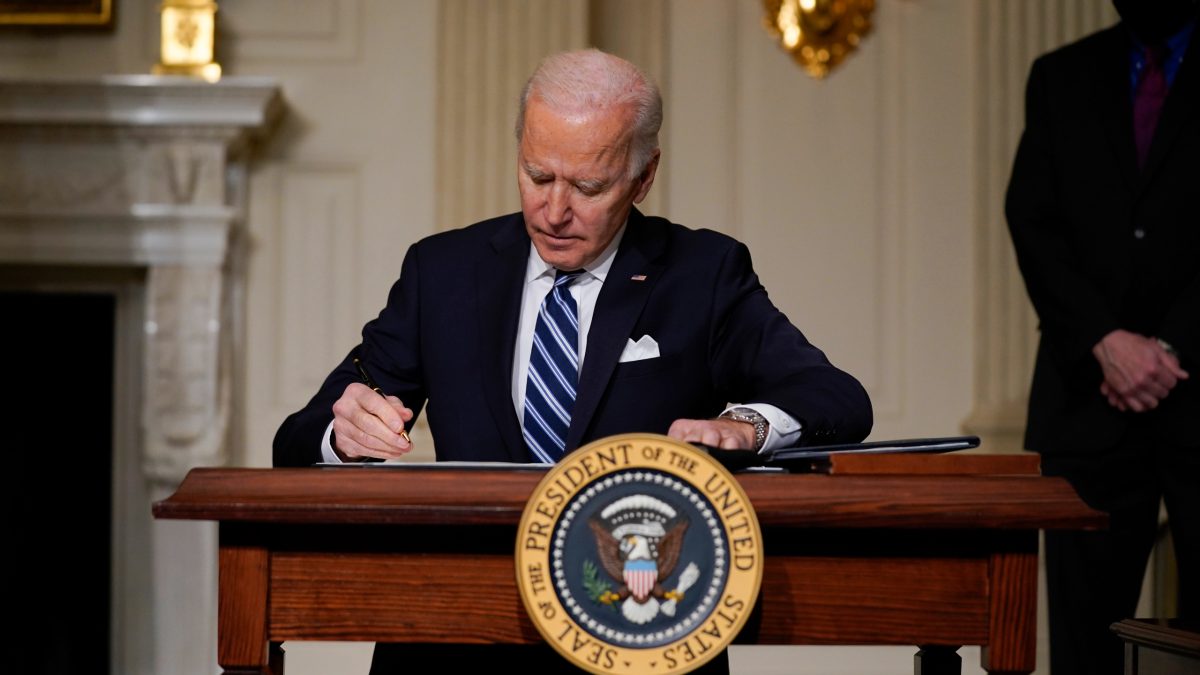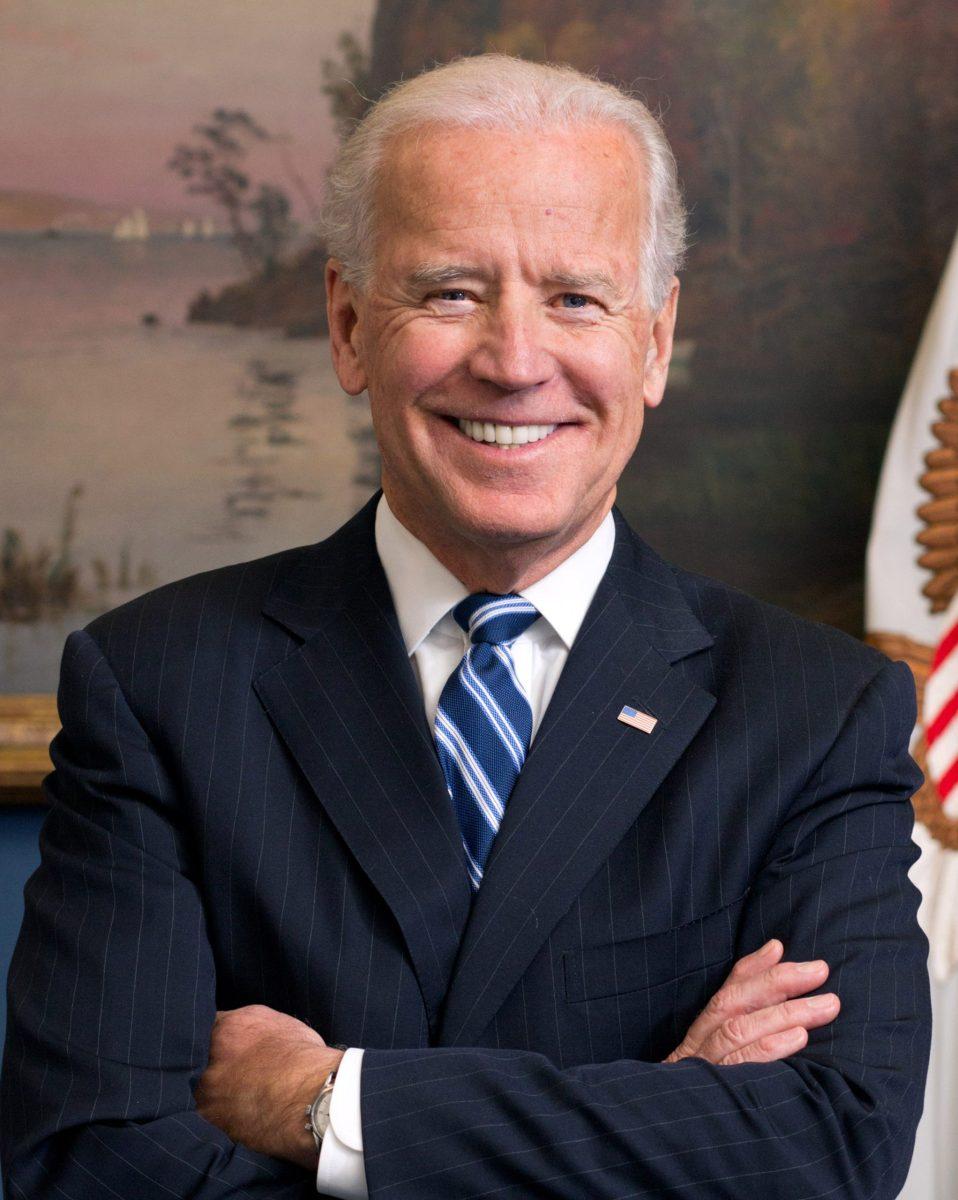[one_third]Liberal – Anthony McInnis
With the Democratic Primaries in full swing, it’s becoming more and more likely that Bernie Sanders will be the nominee to take on Donald Trump in November. The only other major candidates that are likely winners are Joe Biden, and maybe Mike Bloomberg. If Sanders can dominate Super Tuesday, then his path to victory will be set.
The conventional wisdom in most mainstream news media is that Sanders’s far-left beliefs will alienate voters and hand Trump his re-election. However, this could not be further from truth, as when stacked up against the other major Democratic nominees, Sanders has the best chance against the President.
Throughout the entire primary season so far, most candidates had their moment in the sun where they sored to the top of the polls until they fell right back down. The only candidates who maintained constant support are Sanders and Biden. While Biden’s numbers are mostly due to people’s familiarity with him, Sanders supporters are much more dedicated and enthused to vote for him. Most of the other Democrats failed to stand out in any way because they defined themselves more as being against Trump than being for specific policies. Like him or not, Sanders has an actual vision for the country with concrete laws he wants to pass and that resonates with voters.
Polls that match candidates versus President Trump in potential election scenarios in general have Sanders, Biden and Bloomberg beating Trump by roughly the same margin. Obviously, the poll gaps will narrow as the general election approaches. However, when it comes to who will maintain the most support as the election cycle continues, it will be the candidate with the more enthusiastic following.
Bernie’s biggest strength in a general election would be the Rust Belt states. In 2016 Donald Trump won states like Wisconsin, Michigan and Pennsylvania due to his strong stances at the time against free-trade agreements. These are states where a lot of people lost jobs due to legislation like NAFTA. Biden has had a history of supporting free trade, and this is something Trump will easily exploit. Sanders has been against free-trade for decades, and has some very strong support in the Rust Belt. Trump won the election last time by swinging traditionally blue Rust Belt states and Sanders has by far the best chance of swinging them back.
Many of the patterns from the 2016 election are starting to echo now. Republicans should be careful not to underestimate Bernie the same way Democrats underestimated Trump. Tucker Carlson himself has frequently warned his viewers that Bernie Sanders could very well win. Like Trump in 2016, Bernie is a populist candidate attempting to fight his party’s establishment with massive grassroot support. If the Democrats end up going to a brokered convention, then this cycle’s democratic national convention could easily be the most controversial since 1968.
[one_third]Independent – Daniil Ivanov
Most polls currently have Bernie Sanders as the favorite to win the 2020 Democratic nomination for President. On top of that, recent polls put Sanders as likely to beat Trump in the 2020 general election if they were to go head-to-head.
Four years ago, Sanders was in a similar situation against Hillary Clinton—he was an extreme leftist who promised to take from the rich and give to the poor while his counterpart was an establishment politician and a strong moderate. Now, Clinton has been replaced by Biden in the same scenario.
Bernie is loved as a candidate by his base because of his remarkable level of passion and the novelty of his socialist ideas in American politics, especially four years ago when few people had ever heard Democratic Socialism.
However, I think the same critique of him from the last elections still stands: he was in the House of Representatives for 16 years and has been a Senator since 2007, but in his entire legislative career has only been the primary sponsor of seven bills that were enacted. Of those bills, two named post offices in Vermont and the other five were not in any way big-time bills.
His main competition, Biden, served in the Senate for 36 years, where he was the primary sponsor of 42 enacted bills—many of which were impactful—before being the Vice President for eight years.
Sanders’ lack of impact is my biggest concern with him as a candidate. Yes, he speaks in rhetoric about peace and love and community and prosperity, and I give him credit for having the same message for all this time, but he did not make an impact in national politics until he got onto the debate stage.
Therefore, it becomes a hindrance to Biden, as it was to Clinton, that he has so much experience. In the same way that Biden can point directly at decisions he made that had positive impacts in his 44 years in national politics, Sanders can dig up decisions that retrospectively were missteps—as Kamala Harris vehemently did in earlier debates.
Conversely, I doubt that Biden will critique Sanders on his choice of the name of a post office in Vermont, and would otherwise have to debate about Socialist concepts and philosophies in a debate format that does not lend itself to thorough examination of the ideas presented.
However, Sanders’ wild idea of a revolution might be what Democrats at the polls vote for for the same reason that President Trump got elected with abstract rhetoric and plans of a Game of Thrones style wall on our southern border: they want somebody different from the establishment and they don’t think that the more outrageous campaign promises would ever be accomplished anyway.
[one_third]Conservative – Mark Pothen
According to the polls, Bernie Sanders is best poised to win the Democratic Primaries and acquire the Democratic presidential nomination.
The fact that he has been taken so seriously in the Democratic party is absolutely asinine given that the man is a self-proclaimed and out-and-out socialist who honeymooned in the Soviet Union and praised their youth programs. From 1973-75, in his thirties, he served as the chairman of the Liberty Union where he and the party proposed the implementation of a 100% income tax on the country’s highest earners; the nationalization of the energy industry; and public ownership of banks, telephone, electric and drug companies and of the major means of production such as factories and capital.
Nationalization efforts like with the oil industry have not worked out incredibly in places like Venezuela, a country that Sanders used to praise as being a place where the “American dream is more apt to be realized.” Now, the citizens of the country with the largest oil reserves in the world have had to resort to eating dogs and pets to survive because of economic collapse.
How he has been able to obscure his radical past and be presented as someone who should be considered within the Overton Window bewilders me, especially since Sanders used to be at the margins of the Democratic party and it seems as though the Party is embracing him as a thought leader. Furthermore, the fact that no one in the media is willing to ask him basic questions about his political past, or the vagueness of his current plans strikes me as insane.
If his political past is not scary enough, the future that he plans should give voters pause. In terms of cost, it has been calculated to be somewhere in the range of 97.5 trillion dollars in additional spending over the next ten years, which would instantly triple the national budget. Where is all of this money going to come from? Even if he implemented the 100% top bracket income tax rate that he once embraced, that still wouldn’t pay for these plans and presumably even if they did, the highest earners would flee.
Individuals on the left will argue that Sanders’ socialist policies will save Americans money in the long run because they will no longer be spending that money in the private sector. However, this is like comparing apples and oranges because that fails to mention the detrimental effects on quality and choice itself that come with private spending versus public spending. This is especially true when it comes to his proposals of universal healthcare. All of this is to say that his plans would effectively kill all of the productive aspects of capitalism that we all benefit from and which have raised the standard of living for millions.
While I believe that President Trump will have a gigantic advantage over Bernie Sanders come election season, it is a terrible thing that half of the country is mobilizing around an individual who disagrees with the basic premises that America was founded on.
































